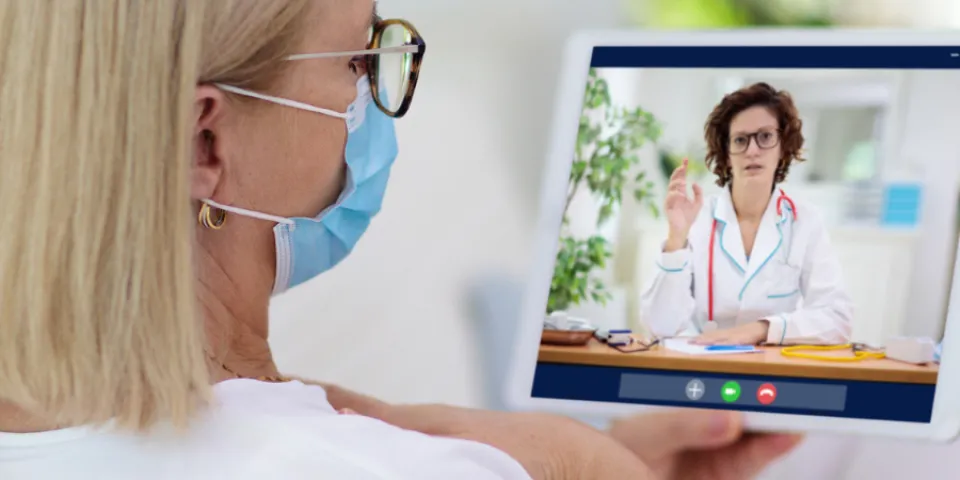Latest 
 Career Development Denise Alexander
Career Development Denise Alexander
Recent Blog Posts


Before the coronavirus pandemic, there was an increased interest in telehealth, which allows people to receive medical care without visiting a medical professional in person. Telehealth has grown even more because of the temporary closures of many medical offices as well as some reluctance by some individuals to interact with others, even after the stay-at-home orders were lifted.
According to the American Hospital Association, 76% of hospitals used telehealth services for their patients before the pandemic. ATA Telehealth studies showed that the global telehealth market is expected to grow 16.8% every year up to 2023.
Here are a few things you need to know about telehealth, how it will affect the delivery of healthcare and the education and training of healthcare professionals for years to come:
Telehealth allows a health care professional to provide medical care remotely, such as through video-conferencing or a phone app. With a computer or a device that has an internet connection, a patient can talk to a medical professional over the phone or on a video. They also can exchange messages with a doctor’s office and allow a provider to monitor vital signs without leaving the home.
Telehealth conversations could even take place over well-known video chat platforms such as Zoom, Skype, Google Hangouts and Apple’s FaceTime.
A variety of medical care is available via telehealth, including wellness visits, dermatology, eye exams, counseling and even some conditions that need to be addressed right away, such as back pain.
Patient convenience is a major benefit. Patients appreciated that they saved travel time when they used telehealth, according to a survey published in the American Journal of Managed Care. The survey also found telehealth was a valuable alternative for patients with scheduling challenges, physical disabilities or other reasons that prevented them from seeing a doctor in person.
Even though the stay at home orders have been lifted, some people still might be apprehensive about going to see a doctor or visit a hospital unless their symptoms are life-threatening. Telehealth allows them to still communicate with a medical professional and get the care they need.
Through telehealth, doctors can monitor patients’ symptoms and conditions at any moment. With social distancing expected to continue for a while, providing patients with remote access to medical services such as doctor consultations is a crucial step in saving lives during the spread of coronavirus.
A patient will likely be asked several questions before a telehealth appointment, such as symptoms, patient history and level of pain or discomfort. It’s also possible that someone could be screened for COVID-19 remotely before the doctor makes a recommendation on what to do next.
“Over the last several months we have seen how our environment has changed, with patients unable to attend doctor visits due to stay in place orders across the country,” said Tricia Wagner, Online Graduate Nursing Department Chair at Herzing University. “Telehealth became a primary means of patients being able to see their providers. Healthcare organizations used the pandemic to implement telehealth to maintain patients’ current plan of care with little disruption. They can use telehealth to support clinical services, education, public health info and more.”
With telehealth becoming more popular, it is important that it’s included in the training of medical professionals. According to Forbes, some helpful training methods include:
Herzing University recognizes the vital need for telehealth, which is why the school is preparing its healthcare students for this growing platform for healthcare.
“We are focused on helping our students understand the importance of telehealth to treat patients who may not be able to travel to appointments,” Wagner said. “We support students to participate in telehealth visits with preceptors. We also provide information that might be important related to confidentiality, HIPAA, billing and coding, approvals through guidelines related to insurance, CMS, etc.”
Healthcare providers need to make sure they resolve potential legal issues and billing considerations before they offer telehealth. They also need to carefully consider how they communicate remotely with patients who might be unfamiliar and uncomfortable with video interactions. For example, providers need to:
Interested in starting an online program? Check out Herzing University Online to start your healthcare or nursing program today!
BLS pay estimates calculate the median annual wage for various occupations. Per the BLS the median wage for an occupation is: "The wage at which half of the workers in the occupation earned more than that amount, and half earned less. Median wage data are from the BLS Occupational Employment and Wage Statistics survey." Bureau of Labor Statistics (BLS), U.S. Department of Labor, Occupational Outlook Handbook 2024. BLS median wage estimates do not represent entry-level wages and/or salaries. Multiple factors, including prior experience, age, geographic market in which you want to work, and degree level and field, will affect career outcomes, including starting salary and earnings as an experienced employee. Herzing neither represents that its graduates will earn the median salaries calculated by BLS for a particular job nor guarantees that graduation from its program will result in a job, promotion, particular wage or salary, or other career growth.
Get the latest news you need to know, from study hacks to interview tips to career advancement. Have it delivered right to your inbox biweekly.